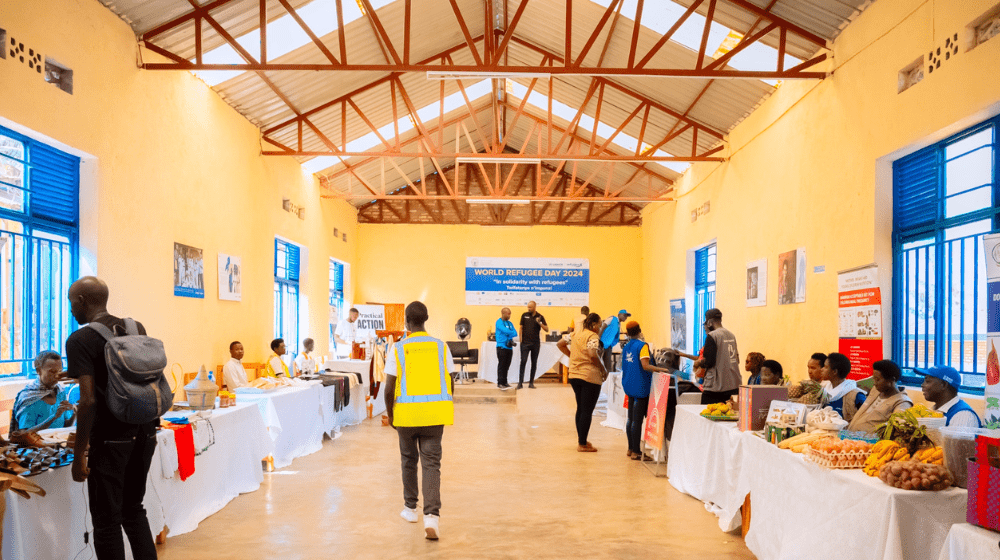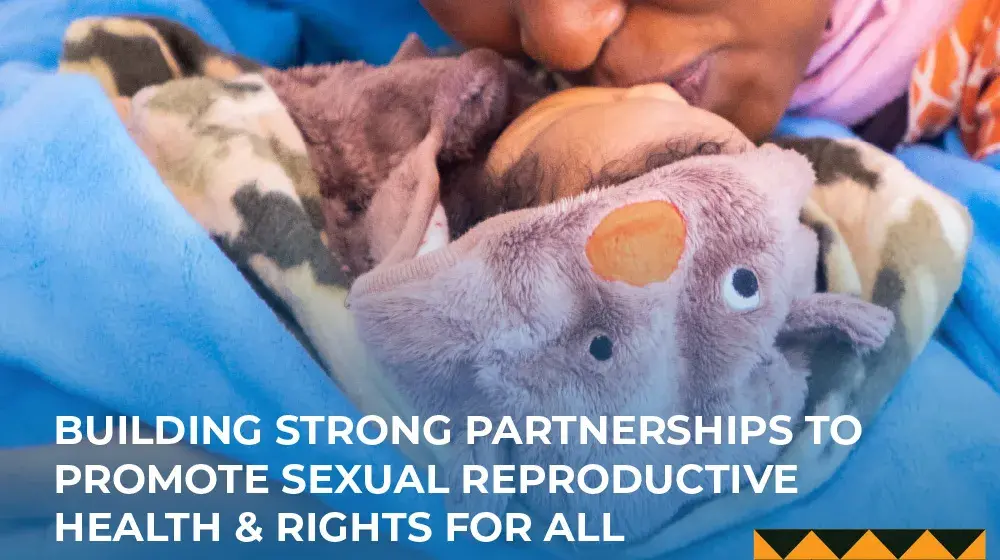One in every 69 people on Earth have been forced to flee. Whether they are escaping persecution, conflict, violence, human rights violations or natural disasters, no one wants to leave their home, livelihoods and everything behind. Desperate conditions beyond their control make people refugees, asylum seekers, internally displaced persons or stateless individuals.
Women and girls, in particular, face specific challenges when on the move, including sexual violence, exploitation and abuse. Overcrowded refugee camps and makeshift settlements also expose them to heightened risks.
This year, World Refugee Day focuses on solidarity with refugees and on creating a world where they are welcomed – at a time when they need the world’s support more than ever. Communities welcoming refugees need to include them in their networks, identify opportunities for them to work and thrive, celebrate their strengths, and acknowledge their challenges.
In collaboration with Alight Rwanda, UNFPA continues to support young and teen mothers in Mahama and Nyabiheke Refugee Camps. These efforts have proven to be transformative, offering a variety of economic empowerment initiatives. These initiatives include mushroom cultivation, soap-making, tailoring, hairdressing salons, and motorbike/Tuk Tuk transportation projects. The goal is to meld health provisions, vocational skill development, and intensive economic empowerment for these young mothers, particularly First Time Young Mothers (FTYMs).
This collaboration has made significant strides in improving the lives of these young women. For instance, in the mushroom cultivation project, two modern hangars were constructed, accommodating over 6,000 mushroom tubes. These enhancements have significantly increased productivity. Eighty young mothers who are members of the mushroom cultivation cooperative received essential supplies, training, protective gear, and cash assistance to support their work. These efforts have not only enhanced their skills but also provided them with a source of income and a sense of independence.
Similarly, the soap-making initiative has empowered many young mothers by providing them with expert training and essential resources. Forty FTYMs were trained to produce high-quality bar and liquid soaps. They received cash assistance, soap-making supplies, trainin protective gear, a soap molding machine, and packaging materials. At the end of this project, the forty young mothers obtained provisional cooperative licenses, further establishing their businesses.
Capacity building has been a crucial component of these initiatives. Through financial literacy training, both soap-making and eighty mushroom cooperative members have gained valuable knowledge on saving, investing, budgeting, and business development. These skills are essential for their long-term success and sustainability.
Globally, to support refugee and displaced women and girls, UNFPA provides reproductive health services, including maternal health and emergency obstetric care, through static clinics and mobile health teams, and ensures that health facilities are better equipped to deliver care by deploying trained staff and life-saving supplies. Safe spaces are also established in refugee camps to ensure that comprehensive services to prevent and respond to gender-based violence remain accessible to women and girls. Basic items that enable women to manage their hygiene and menstruation are also distributed.
You can learn more about how to get involved and show solidarity with refugees here.



